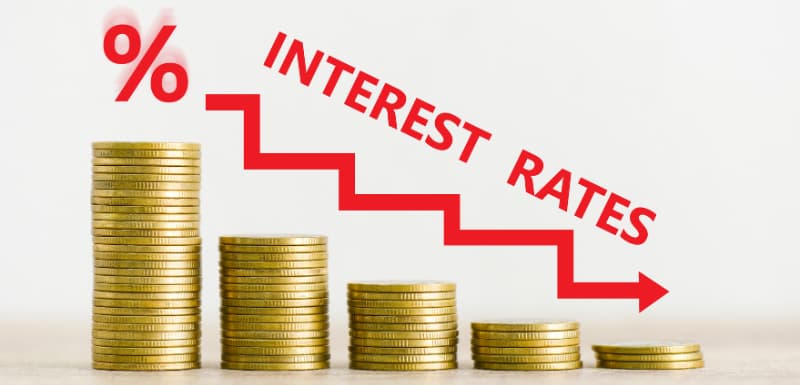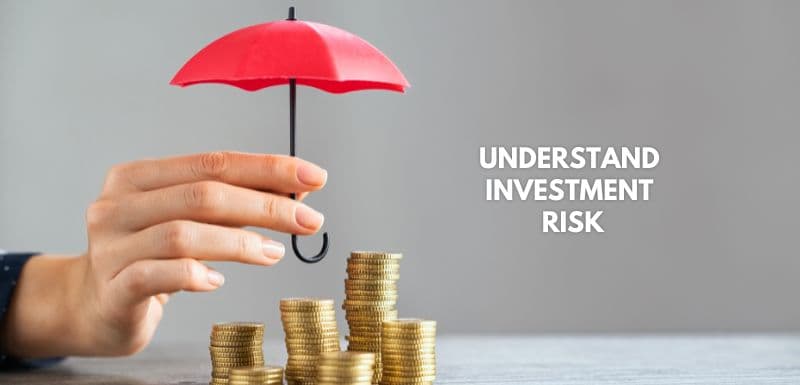Interest Rates May Go Down: Should You Lock Into High FD Rates or Invest in Duration Debt Funds?

In the last few monetary policy meetings, the Reserve Bank of India (RBI) and the US Fed have maintained a status quo on interest rates. Throughout most of 2022-23, most central banks increased interest rates to combat high inflation.
In 2024, inflation has slowed considerably compared to 2022-23. With inflation coming down and nearing the tolerance levels of central banks, most experts expect interest rate cuts in the second half of 2024. So, as an investor should lock into the current high fixed deposit (FD) rates? Or should you invest in duration debt funds to benefit from the combination of current high accrual and potential capital gains when interest rates head down? Let us try to find the answer.
Benefits of Investing in Fixed Deposits
As of February 2024, most large banks offer interest rates in the 7-8% p.a. range on fixed deposits of various tenures. Most small finance banks (SFBs) and some non-banking financial companies (NBFCs) are offering interest rates in the 7.5-9% p.a. range on fixed deposits of various tenures.
You can choose the interest rate payout frequency as monthly, quarterly, or on maturity. In the case of cumulative FDs, where the interest amount is paid on maturity, the interest amount is compounded quarterly. So, the effective rate that you get on cumulative FDs is higher than the per annum rate published. You can opt for auto-renewal on FD maturity.
Some of the benefits of fixed deposits include the following.
FDs Offer Guaranteed Returns
The interest rate payable is mentioned upfront at the time of making the FD. It stays fixed throughout the tenure of the entire FD. So, there is no market volatility in terms of FD returns.
Insurance up to Rs. 5 Lakhs
All deposits (savings, current, fixed and recurring and interest on them) of a customer with every bank are insured up to Rs. 5 lakhs. Deposit Insurance and Credit Guarantee Corporation (DICGC), a wholly-owned subsidiary of the RBI, provides the insurance cover. You don't have to pay the premium for the insurance cover as the bank pays it.
DICGC insurance cover applies to all commercial banks, including public sector banks, private sector banks, small finance banks, branches of foreign banks operating in India, etc. Thus, your fixed deposits of up to Rs. 5 lakhs with every bank are insured in the event of bank failure/liquidation.
Section 80C Deduction From Taxable Income
All banks offer a 5-year tax-saving fixed deposit. On this FD, you can get a deduction from your taxable income under Section 80C of the Income Tax Act. The maximum deduction in a financial year is the amount invested or Rs. 1,50,000, whichever is lower. So, the tax-saving FD can give you the dual benefits of high interest rates and tax savings.
No Charges
Banks don't levy any charges for opening a fixed deposit account or any annual maintenance charge. Thus, opening and operating an FD is free from any charges.
Points to Keep in Mind for Fixed Deposits
As an investor, you need to remember the following points for fixed deposits.
Penalty for Pre-mature Withdrawal
All FDs have a specified tenure, which you must select when opening a FD. If you want to make a pre-mature withdrawal, the bank levies a penalty. For example, assume you have opened a 3-year FD and want to make a pre-mature withdrawal after one year. In this case, firstly, the bank will apply the interest rate for one year tenure instead of 3 years. Secondly, the bank will charge a penalty, usually in the 0.5 to 1% range.
Interest Taxation
The interest amount on an FD is taxed at the individual’s slab rate. So, the FD interest will be added to your overall income and taxed as per your slab.
Returns May Not Beat Inflation
After considering taxation, the interest rate may sometimes be lower than inflation. In other words, your real rate of return may be negative.
Minimum FD Amount
Different banks have different minimum amount requirements for opening a FD. It may range from as low as Rs. 100 to as high as Rs. 25,000.
We now understand the pros and cons of investing in an FD. Let us now understand the pros and cons of investing in a duration debt fund.
Benefits of Investing in Debt Fund
A debt fund usually invests in money market securities, corporate bonds, government bonds, etc., depending on its objective. A debt fund usually earns interest on the debt instruments that it invests in. It also has the potential to provide capital gains when the interest rates move down.
Interest rates and bond prices have an inverse relationship. When interest rates move down, bond prices move up, and vice versa. Currently, we are in a high interest rate environment. In the second half of 2024, interest rates are expected to go down. So, when you invest in debt funds that invest in corporate / Government bonds, you will have the opportunity to make capital gains when interest rates move down.
The sensitivity of bond prices to interest rate movements depends on the duration. The prices of bonds with higher tenure are more sensitive to interest rate movements compared to those with lower tenure. Hence, if you want to benefit from the capital gain due to a fall in interest rates, invest in debt funds with a higher duration. When you invest in these funds, you will benefit from the combination of current high interest rates and potential capital gains when interest rates fall in future.
Remember that debt funds carry credit risk, as the bond issuer can default on repayment. Hence, if you have a conservative risk profile, you may invest in a gilt fund that invests most of its money in Government Securities (G-Secs). They provide benefits like high credit quality, liquidity, and portfolio diversification, along with current higher accrual and future potential capital gain.
Points to Keep in Mind for Debt Funds
As an investor, you need to keep the following points in mind for debt funds.
Credit Risk
As discussed in the earlier section, debt funds carry credit risk. The bond issuer can default on repayment. Sometimes, there can be a delay in the payment of interest.
Interest Rate Risk
If the interest rates move in the opposite direction than expected, it can result in a capital loss. For example, instead of going down, if the interest rates move up, the bond prices will fall. It will lead to a fall in the scheme's net asset value (NAV), resulting in a capital loss for investors.
Choosing Between a Fixed Deposit and a Duration Debt Fund
Choosing between a fixed deposit and a duration debt fund will depend on your risk profile and other factors. If you have a conservative risk profile and are content with fixed returns (no market volatility), you may invest in a fixed deposit.
You can lock in the current high interest rates for a tenure of your choice (6 months to 5 years) and enjoy monthly/quarterly interest payments or on maturity. Are you comfortable taking some interest rate risk and want to benefit from the combination of current high accrual and potential capital gain in future when interest rates fall? In that case, you may invest in a gilt fund with a higher duration.
Your Investing Experts
Relevant Articles
Interest Rates May Go Down: Should You Lock Into High FD Rates or Invest in Duration Debt Funds?
In the last few monetary policy meetings, the Reserve Bank of India (RBI) and the US Fed have maintained a status quo on interest rates. Throughout most of 2022-23, most central banks increased interest rates to combat high inflation.
Ten Important Features Of Your Health Insurance Policy
Health insurance isn’t just a safety net—it’s a necessity! From pre-existing conditions and waiting periods to claim settlement ratios and sub-limits, knowing your policy inside out can save you from unexpected financial burdens. Choose wisely and ensure your coverage meets your family’s needs!
How to Manage Investment Risk Efficiently
“The biggest risk is not taking any risk” is a famous quote by Mark Zuckerberg. The same applies to the investing world also. Some investors play safe and invest all their savings in low-risk options like bank fixed deposits, Government securities, etc. But, after factoring in taxation, the returns may not even be able to beat inflation. So, you run the risk of negative returns. Hence, it is recommended that you take risk by investing in equity mutual funds and mitigate/manage the risks using various risk management strategies. In this article, we will understand how to manage investment risk in mutual funds using various strategies.


